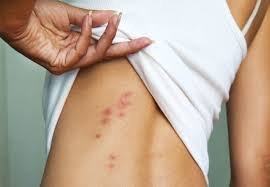BED BUG CONTROL
ABOUT
Bed bugs are parasitic insects of the cimicid family that feed exclusively on blood. As you know, bed bugs have become a major concern. They’re making headlines in newspapers, magazines, TV, and radio. Bed bugs are hitchhikers and have no boundaries. They cross all social lines. The earlier an infestation is detected the easier and quicker it can be eliminated through effective bed bug treatment.
SKPC uses specialized inspection equipment to detect bed bugs even at the early stages of an infestation!
WHY THEY PRODUCE?
Bed Bug fecal and blood spots (look like rust) are left on sheets and pillowcases when the engorged bed bugs are crushed. These indicators serve as sure signs of infestation. Bed bugs prefer to hide in cracks and crevices during the daytime and come out to feed on the host’s blood at night, usually while the host is sleeping.
Since bed bugs can flatten their bodies, they fit in very small crevices, specially around the bed area. They are found in habitual hiding places, preferably close to a blood meal. Even though their preference is to be close they can travel several feet for a blood meal.
PRE-TREATMENT
Bed Bug Pre-treatment Procedures
Bed bugs
Reduce Clutter
Launder Infested Garments and Linens
Dismantle Bed Frames
Remove Dresser Drawers
Clean the Area
Caulk and Seal
TREATMENT
Bed Bug focal and blood spots (look like rust) are left on sheets and pillowcases when the engorged bed bugs are crushed. These indicators serve as sure signs of infestation. Bed bugs prefer to hide in cracks and crevices during the daytime and come out to feed on the host’s blood at night, mostly while the host is sleeping.
Since bed bugs can flatten their bodies, they fit in very small crevices, especially around the bed area. They are easily found in their habitual hiding places, preferably close to a blood meal. Even though their preference is to be close they can travel several feet for a blood meal.
BED BUG TREATMENT PROCEDURE
Spray liquid insecticides or aerosols:
Spray around the inside of closets, door frames and doors.
Spray moulding at the top and bottom of the room.
Spray around windows.
Spray seams of drawers, both top and bottom.
Spray dressers from below.
Spray where dressers touch the floor.
Spray where the bed touches the floor, spray chairs and underneath chairs.





